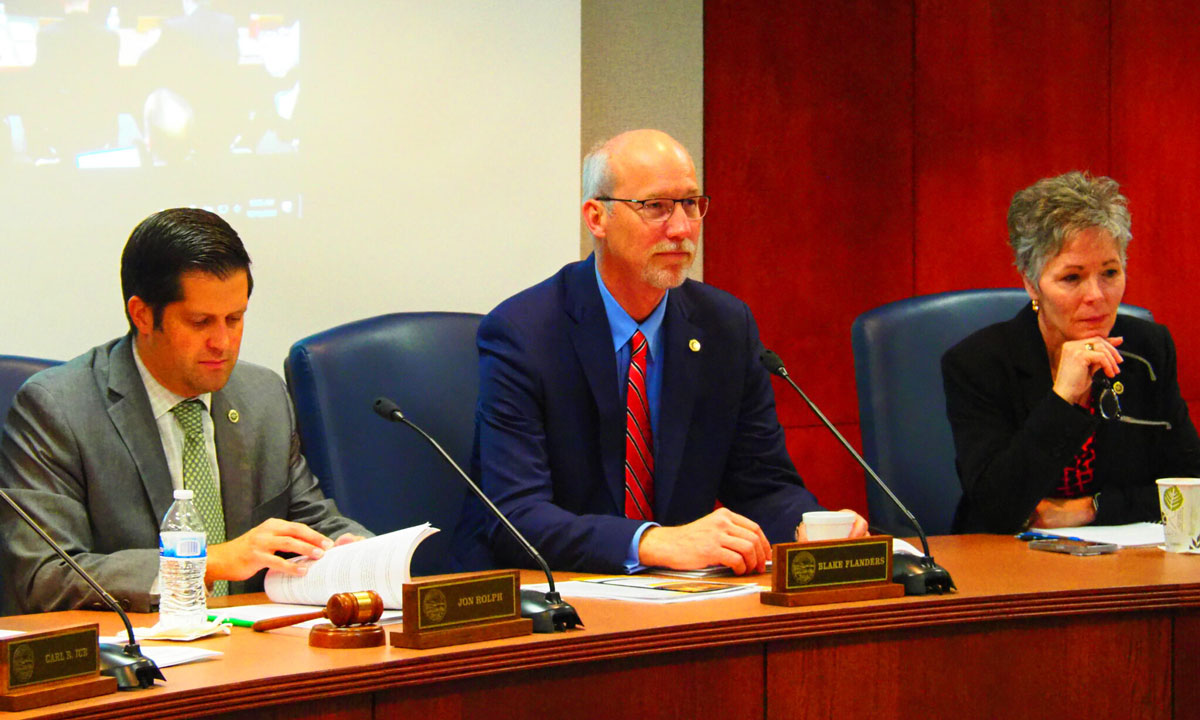Kansas Faces Shortfall of 34,000 College-Educated Workers Through 2030
Job growth, retirement, out-migration complicate economic development horizon.

Get stories like this delivered straight to your inbox. Sign up for The 74 Newsletter
TOPEKA — A new labor report revealed the current annual rate of degree and certificate completion at Kansas colleges and universities would be insufficient to meet anticipated growth in demand for young, educated workers and could leave the state’s economy with an estimated 34,000 shortfall by end of this decade.
Analysis by the Institute for Policy and Social Research at the University of Kansas delved into challenges of surging higher education attainment in Kansas despite a declining percentage of high school graduates interested in college, the out-migration of Kansas college graduates to Missouri, Colorado and Texas, and the lack of competitiveness of salaries paid Kansas workers in engineering, business and other fields compared to peers in nearby states.
Failure of state lawmakers, education leaders and employers to address labor gaps, especially demand for recipients of bachelor’s degrees, could impede economic development through 2030.
“We hear a message, and I believe this too, that not everyone needs a baccalaureate degree,” said Blake Flanders, president and chief executive officer of the Kansas Board of Regents. “The fact of the matter is the data says there are a lot of people who will need a baccalaureate degree.”
Donna Ginther, KU distinguished professor economics and director of the research institute, said the report showed Kansas could add 54,000 jobs requiring a postsecondary degree from 2020 to 2030. This evaluation took into account the likely exit from the Kansas labor force of 180,000 people with postsecondary degrees due to retirement or moving to other states. Overall, Kansas would need to fill 234,000 jobs with new graduates over the 10 years.
At the current pace, she said, about 200,000 new postsecondary graduates could be expected to stay in Kansas through 2030. That would mean Kansas had to come up with an additional 34,000 credentialed workers to satisfy projected growth in jobs, Ginther said.
Exporting graduates
Ginther said Kansas had a track record of modest net migration losses among recipients of higher education credentials, but had substantial deficits with Texas and Colorado. One concern was higher wages offered in those states, even when Kansas’ lower cost of living was woven into calculations. A Kansas business degree recipient could expect to annually earn $10,000 more by taking a job in Colorado, she said. A Kansas engineer could make $15,000 more per year in Texas and a computer science graduate in Colorado could receive a salary of $20,000 greater than in Kansas.
In addition, the study showed Kansas retained less than half of all bachelor’s degree recipients nine years after graduation. The higher the degree earned, Ginther said, the more likely a person would depart Kansas.
“This is a challenge and an opportunity. If we can keep these people, we will meet that 34,000 number,” Ginther said. “People want to live here if they can find a good job. That’s the bottom line.”
Ginther said Kansas policymakers could make inroads into the problem by improving college readiness among the state’s high school graduates and by keeping a public college education affordable to students. She said the state could invest more broadly in college loan forgiveness programs that required Kansas graduates to take jobs in the state. In addition, she would encourage Kansas employers to make salaries more competitive with nearby states.
Overall, the KU institute’s report indicated the Kansas economy could absorb from 2020 to 2030 the recipients of 36,500 bachelor’s degrees, 7,400 college certifications, 3,500 doctoral or professional degrees, 3,100 master’s degrees, 3,000 associate degrees, and 1,100 requiring some college but no degree.
Wider path to college
Melanie Haas, chair of the Kansas State Board of Education, said part of the answer was expanding acceptance in public school districts of the value in creating personalized education plans for each student. She said some, but not all, school districts were enthusiastic about developing education plans for all students.
Formation of a documented education pathway could carry a student through high school and into college, she said.
“We need to hold districts to a high standard in the interests of students and the families they serve,” Haas said. “Students need to see their own path to college.”
Kansas Board of Regents member Cynthia Lane, the former superintendent of schools in Kansas City, Kansas, said Kansas should mandate districts make perhaps three college-level courses available to every high school student. Kansas has expanded opportunities for high school students to earn more college credit, but inconsistency in availability of courses remained an issue.
“When you talk about students graduating with more than their high school diploma — early college hours, credentials — we are in great alignment,” Lane said.
Wint Winter, a member of the state Board of Regents, said convincing people who earned college degrees in Kansas to stay in this state was a laudable goal. However, he said, out-of-state students attending college in Kansas still made a contribution to the state’s economy.
“We need to aspire to figure out a way to keep our students here, whether they are native Kansans or coming from Chicago,” Winter said. “I think we lose sight of the fact that even if we have that student for only four years, that student is contributing to the gross state product.”
Kansas Reflector is part of States Newsroom, a network of news bureaus supported by grants and a coalition of donors as a 501c(3) public charity. Kansas Reflector maintains editorial independence. Contact Editor Sherman Smith for questions: info@kansasreflector.com. Follow Kansas Reflector on Facebook and Twitter.
Get stories like these delivered straight to your inbox. Sign up for The 74 Newsletter

;)